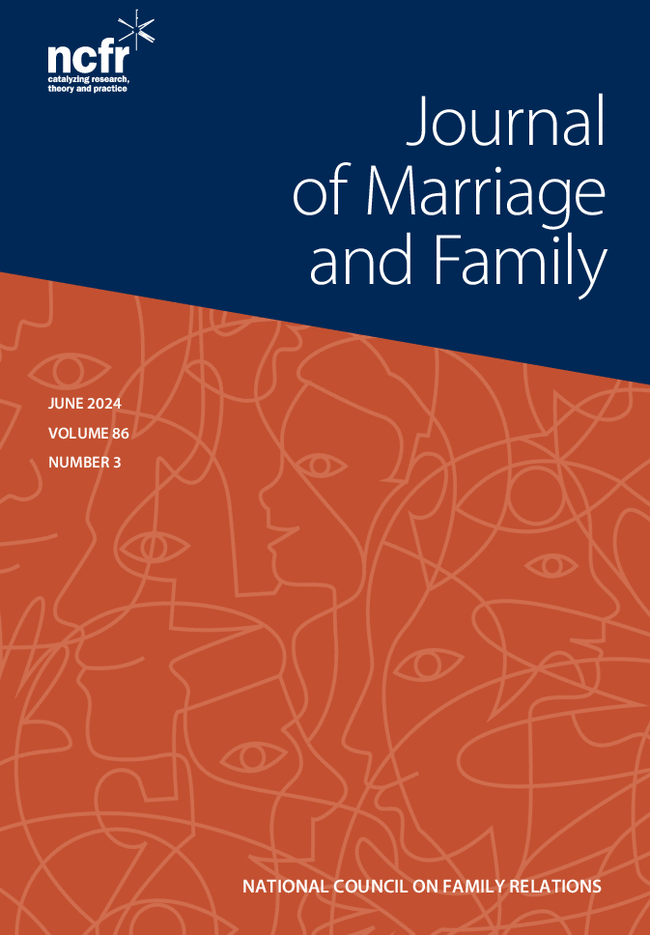Fairness perceptions of the postdivorce division of childcare and child-related expenses
Abstract
Objective
This study examines how the division of childcare and child-related expenses after divorce affects fairness perceptions of mothers and fathers.
Background
Previous research has focused on married families and found that unequal divisions of household labor are often regarded as fair. This study investigates whether fairness perceptions are also common for divorced parents for whom the division of childrearing responsibilities may be a sensitive issue.
Method
The analyses were based on data from Wave 3 of the New Families in the Netherlands survey, which was conducted in 2020 among a random sample of divorced or separated parents (N = 2963).
Results
The division of childcare and child-related expenses after divorce was perceived as fair by about half of parents, yet for childcare this was nearly 60% for fathers. Higher contributions to child-related expenses were associated with stronger unfairness perceptions. For childcare, not only parents who contributed a lot but also parents contributing little were most likely to perceive the division as unfair (with parents with more equal contributions falling in between). Mothers were more sensitive to inequitable divisions of childrearing responsibilities than fathers.
Conclusion
Unfairness perceptions are relatively widespread in postdivorce families suggesting that the division of childrearing responsibilities is less taken for granted after divorce. Time and money investments of divorced parents relate differently to unfairness perceptions, and postdivorce fairness perceptions and processes are gendered.


 求助内容:
求助内容: 应助结果提醒方式:
应助结果提醒方式:


